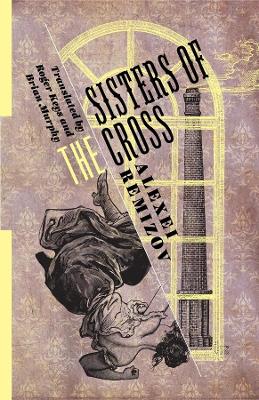Russian Library
2 total works
In a dilapidated and isolated old house, something peculiar seems to happen whenever the town's bestial exterminator visits. On a seemingly bucolic country estate, the head of the household is a living corpse obsessed with other corpses. An adolescent boy who passes his days in private dream worlds experiences a sexual awakening spurred by his family's scandalous tenant. In these and other stories, the modernist writer Alexei Remizov offers a panorama of Russian mythology, the supernatural, rural grotesques, and profound religious faith in fiery revolutionary settings.
Alexei Remizov was one of the greatest writers of the Russian symbolist movement of the early twentieth century. In the thirteen stories collected in this volume, Remizov's exceptional stylistic achievements are on full display. Equally drawing on rural colloquial speech, the language of Russian fairy tales, and the customs of the Old Believers and Russian Orthodoxy, they transport the reader into a mysterious world in between uncanny folktales and encroaching modernity. The Little Devil and Other Stories includes works from across Remizov's career encompassing his thematic preoccupations and stylistic experimentation. Antonina W. Bouis's translation captures Remizov's many registers to offer English-language readers a sampling of a remarkable Russian writer.
Alexei Remizov was one of the greatest writers of the Russian symbolist movement of the early twentieth century. In the thirteen stories collected in this volume, Remizov's exceptional stylistic achievements are on full display. Equally drawing on rural colloquial speech, the language of Russian fairy tales, and the customs of the Old Believers and Russian Orthodoxy, they transport the reader into a mysterious world in between uncanny folktales and encroaching modernity. The Little Devil and Other Stories includes works from across Remizov's career encompassing his thematic preoccupations and stylistic experimentation. Antonina W. Bouis's translation captures Remizov's many registers to offer English-language readers a sampling of a remarkable Russian writer.
Thirty-year-old Piotr Alekseevich Marakulin lives a contented, if humdrum life as a financial clerk in a Petersburg trading company. He is jolted out of his daily routine when, quite unexpectedly, he is accused of embezzlement and loses his job. This change of status brings him into contact with a number of women-the titular "sisters of the cross"-whose sufferings will lead him to question the ultimate meaning of the universe. The first English translation of this remarkable 1910 novel by Alexei Remizov, one of the most influential members of the Russian Symbolist movement, Sisters of the Cross is a masterpiece of early modernist fiction. In the tradition of Gogol's Petersburg Tales and Dostoyevsky's Crime and Punishment, it deploys densely packed psychological prose and fluctuating narrative perspective to tell the story of a "poor clerk" who rebels against the suffering and humiliation afflicting both his own life and the lives of the remarkable women whom he encounters in the tenement building where he lives in Petersburg.
The novel reaches its haunting climax at the beginning of the Whitsuntide festival, when Marakulin thinks he glimpses the coming of salvation both for himself and for the "fallen" actress Verochka, the unacknowledged love of his life, in one of the most powerfully drawn scenes in Symbolist literature. Remizov is best known as a writer of short stories and fairy tales, but this early novel, masterfully translated by Roger Keys and Brian Murphy, is perhaps his most significant work of sustained artistic prose.
The novel reaches its haunting climax at the beginning of the Whitsuntide festival, when Marakulin thinks he glimpses the coming of salvation both for himself and for the "fallen" actress Verochka, the unacknowledged love of his life, in one of the most powerfully drawn scenes in Symbolist literature. Remizov is best known as a writer of short stories and fairy tales, but this early novel, masterfully translated by Roger Keys and Brian Murphy, is perhaps his most significant work of sustained artistic prose.

